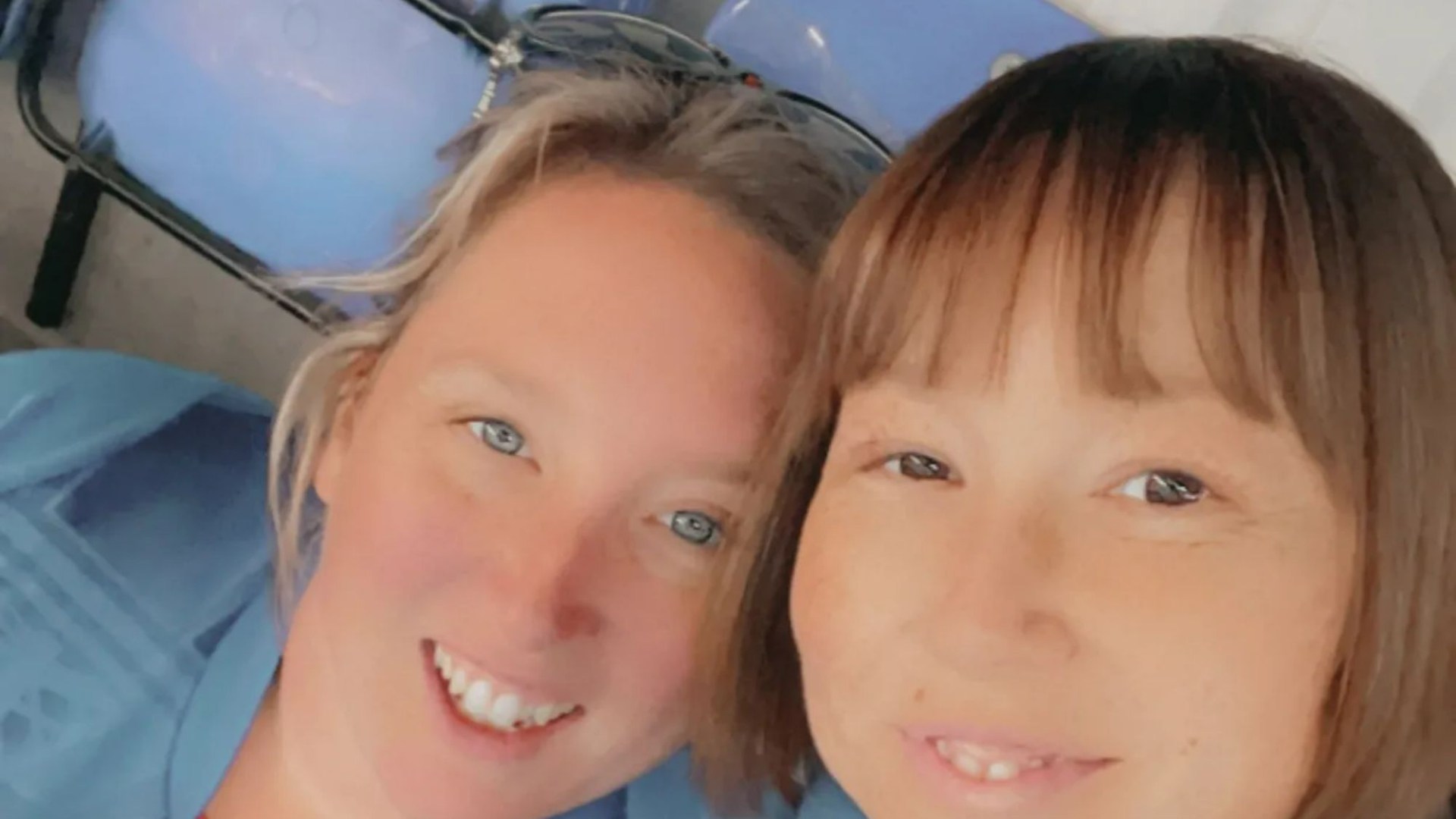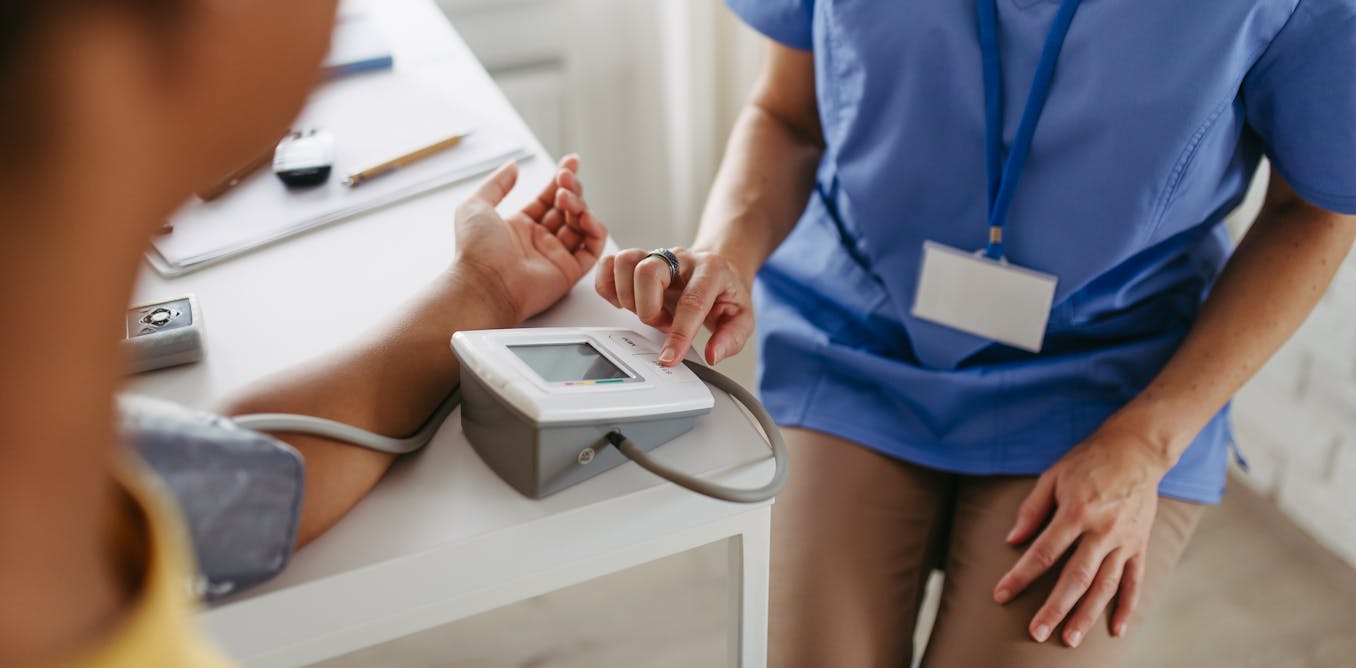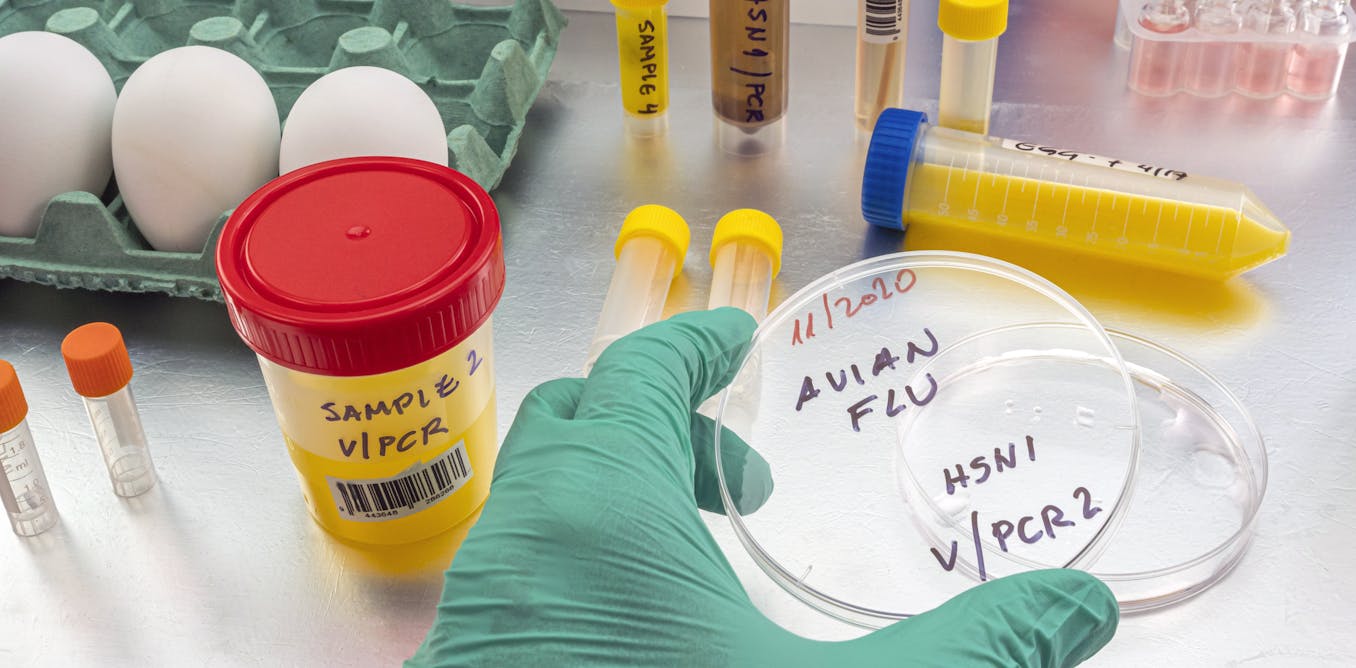A TRIP to a nail salon tends to be a treat that leaves you feeling refreshed and pampered.
But for 34-year-old Louise Whymark, a visit to her nail technician led to the shock discovery that she had unknowingly been living with a silent killer disease that put her “in the stroke zone”.

6

6

6
Louise, from Manningtree in Essex, says: “I usually get my nails done once a month, and told my nail technician Kim that I had a problem with one of my toenails. I wasn’t too worried about it.”
But her nail technician was quick to spot that something wasn’t right.
“She had a look and told me I needed to go to the doctors to check for an infection.
“If she hadn’t said that I would have left it, definitely.”
Read more on health red flags
Louise went straight to the GP, who carried out a number of tests before giving her medication to treat her toe.
To her shock, the 34-year-old was eventually diagnosed with kidney disease.
Louise recalls: “I had abnormally high blood pressure and a fast heart rate, and the blood test showed my kidney function was at 22 per cent.
“[The GP] booked me in for an urgent scan at Colchester General the next day – and I didn’t leave for a week.
“My blood pressure was in the stroke zone and my heart rate was in the cardiac arrest zone.
“They did a kidney biopsy and I was diagnosed with kidney disease and put on medication to lower my blood pressure and heart rate.
“It all happened so quickly and was a real shock to me and my family, as I felt fine. It has been difficult to come to terms with.”
Fingernails and toenails can reveal signs of kidney damage, appearing discoloured or displaying changes in texture or shape.
This can be caused by kidney disease, which affects kidney function and blood circulation.
As the body has difficulties removing waste products like blood urea nitrogen (BUN) and creatinine, these substances can build up in the bloodstream, creating physical changes, such as those seen in nails.
My immune system basically killed off both my kidneys
Louise Whymark
Louise, who’s had to be signed off from her job at the Manningtree East of England Co-op, was diagnosed with a rare form of kidney disease called IgA nephropathy – caused by the body’s immune system attacking bacteria in Louise’s kidneys.
She began seeing a kidney consultant regularly to monitor her kidney function.
She says: “My immune system basically killed off both my kidneys.
“I wasn’t aware of any symptoms and if I hadn’t gone to the doctors when my nail technician said I should then I’d probably have been none the wiser, until a point where I’d become even more poorly.”

6

6

6
Louise was told she would eventually need dialysis or a transplant to keep her alive.
There is no cure for kidney disease and treatments can take a big toll on the lives of patients.
Transplantation from a living or deceased donor is usually the preferred option but there’s an average wait of two and a half years, and even a successful transplant only lasts for an average of 20 years until it fails.
Most kidney patients can expect to need multiple transplants in their lifetime.
A series of hurdles
Louise was desperate to be added to the NHS transplant waiting list.
However, she was told she needed to lose weight before this would be possible.
Instead of following a calorie-controlled diet, Louise focused on completely cutting back on snacks.
She says: “You think in your mind that you’ll never lose the weight, but I’ve kept quite positive throughout the whole situation and any hurdles I’ve hit, I’ve just tackled them.
“I was put on a strict low salt diet, and it was a case of cutting out snacking and certain foods like crisps rather than taking up lots of exercise. I’m not really a gym person!”
Her determination has led Louise to lose nearly 5st, going from nearly 17.5st to 13st in under two years, and she was finally added to the transplantation waiting list in October 2023.
Signs of kindey disease
Alison Railton, head of policy and external affairs at KRUK says: “Poor kidney function can cause symptoms that affect parts of the body that we wouldn’t expect, much like in Louise’s case, which makes awareness vital.
“Kidney disease can be hard to detect as symptoms can often be hidden and some people with pre-existing conditions are more at risk than others.
“To see whether you are at risk of kidney disease use the Kidney Health Check on the Kidney Research UK website.”
Signs you may have kidney disease include:
- You’re more tired, have less energy or are having trouble concentrating
- You’re having trouble sleeping
- You have dry and itchy skin
- You feel the need to urinate more often
- You see blood in your urine
- Your urine is foamy
- You’re experiencing persistent puffiness around your eyes
- Your ankles and feet are swollen
- You have a poor appetite
- Your muscles are cramping
Sources: Kidney Research UK, National Kidney Foundation
Louise says: “It was very emotional to get the call. I remember coming off the phone crying and telling my mum and sister, ‘I’m active!’ and then thinking, ‘Oh god, I need to do a hospital bag.’
But around the corner was another challenge. “I was lethargic, off food and feeling sick in the morning, and knew I was close to having to start dialysis.
“My kidney function dropped to just 6 per cent in November 2023. I now have to visit a dialysis ward three times a week, for around four hours at a time, to receive haemodialysis treatment.”
Haemodialysis is a way of replacing some of the functions of your kidneys if they’ve failed, by using a machine to filter and clean the blood.
When I’ve told other people that I’ve got kidney disease, some would look at me and say, ‘There doesn’t look like there’s anything wrong with you’. I might look perfectly fine but inside my body is saying differently.”
Louise Whymark
It involves diverting blood into an external machine, where it’s filtered before being returned to the body.
Louise says: “I’ve had to adjust to a new way of living because dialysis is part of my day-to-day life until I can get a transplant.
“I leave home at 3pm and if I’m lucky I’m home by 11pm.
“I’m lucky I have a very good support network in my family and some close friends.
“My sister comes along to dialysis with me at least once a week to give me some company.
“The staff at Colchester Dialysis Unit have been amazing and have made the transition less overwhelming.”
A positive outlook
Louise has also had to grapple with people’s reactions to her condition.
“When I’ve told other people that I’ve got kidney disease, some would look at me and say, ‘There doesn’t look like there’s anything wrong with you’.
“I might look perfectly fine but inside my body is saying differently.”
The 34-year-old has tried to preserve a sense of routine to help her cope with her diagnosis.
“I try to keep as much normality in my life as possible, and my escape is watching Ipswich Town Football Club.
“I’m a season ticket holder and love football.”
She’s also making plans for the future, following her operation.
“I’ve decided once I’ve had the transplant, me and some friends are going to take on the ‘Dare Skywalk’ over Tottenham Hotspur’s stadium to raise money for Kidney Research UK.”
Now, Louise is looking forward to getting that call to say there’s a transplant available.
“It has been tough mentally and physically, but remaining positive has helped me through everything so far.
“I just have to wait for that call for a transplant and when I get it, I’ll be ready.
“If my body accepts it, hopefully I’ll be looking forward to getting back some sort of normal, healthy life.”




